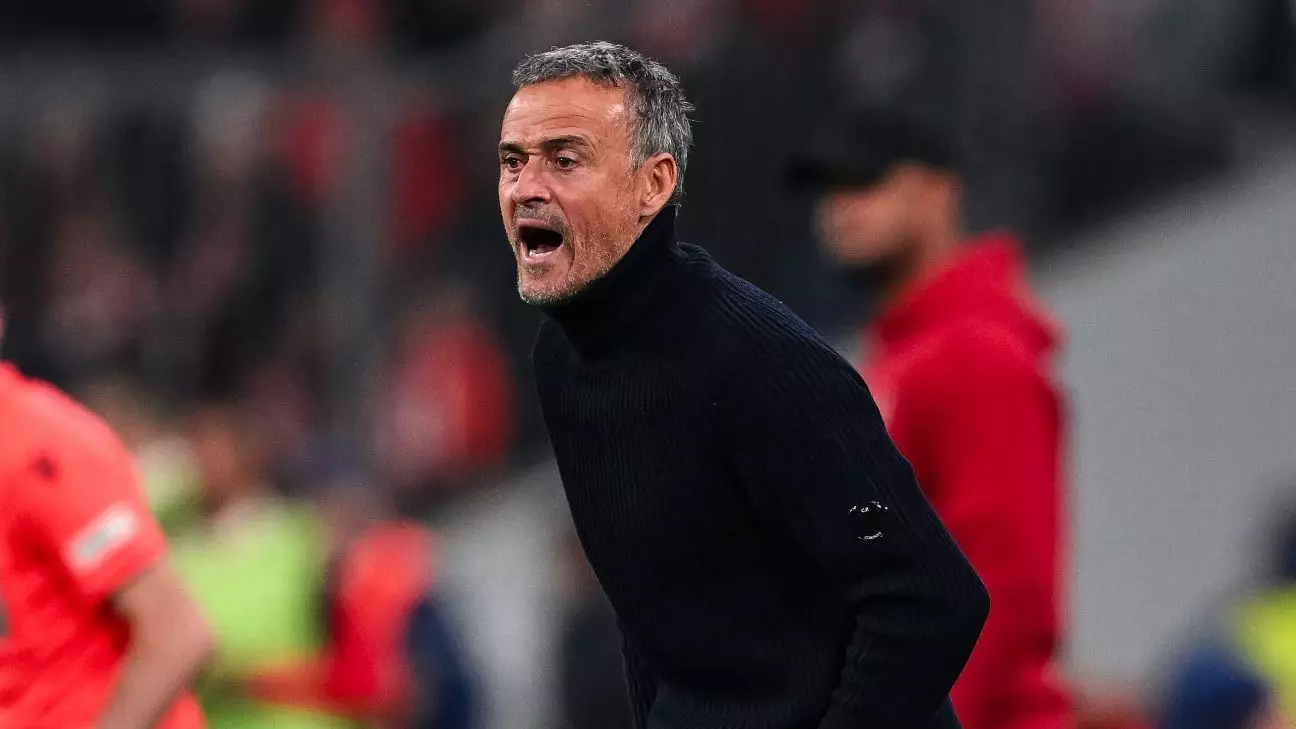In the wake of Paris Saint-Germain’s disappointing performance in the UEFA Champions League against Bayern Munich, coach Luis Enrique confronted the media with a blend of frustration and accountability. Following a 1-0 defeat exacerbated by Ousmane Dembélé’s red card, Enrique’s response encapsulated a profound acknowledgment of his role in the team’s struggles. His insistence that “responsibility is always global” not only highlights the collective nature of team performance but also underscores the burden of leadership in high-stakes environments.
For the coach, assuming blame rather than deflecting it fosters a culture of unity and resilience. This approach is particularly important in a sport where the pressure for immediate results often leads to finger-pointing and scapegoating. By emphasizing collective responsibility, Enrique encourages his players and staff to draw lessons from defeats rather than succumb to despair.
Enrique’s candid remarks reveal an introspective mindset as he reflects on the team’s troubling trajectory—having secured only one victory from their last four matches in the prestigious tournament. His statement, “they provide a lot of information about which players may be here in the future,” indicates a pivotal moment of reckoning for both the team and management. The upcoming fixtures will undoubtedly serve as a litmus test for player commitment and performance under duress.
The pressure on the squad is intensifying, and Enrique’s analytic approach may lead to substantial changes in the lineup. The coach’s acknowledgment of current inadequacies suggests that this period could catalyze crucial decisions regarding player retention and likely transfers. Thus, the expectation is not merely for immediate improvement but an overall structural evaluation of the team’s composition.
For a club of PSG’s stature, the burden of expectations can be both a motivating force and a source of considerable frustration. The team’s recent slump places the Ligue 1 leaders in a precarious position as they aim to solidify their status among the European elite. Enrique’s commentary on the frustrating nature of these defeats resonates with fans and players alike, who undoubtedly share the sentiment of urgency and demand for excellence.
A noteworthy aspect of Enrique’s recent commentary is his understanding of how psychological factors contribute to player performance. He remarked on the “annoying defeats” while discussing the necessity of analyzing each game more critically. This perspective illustrates that, beyond technical skills, mental fortitude plays a crucial role in achieving success in such a competitive arena. The team’s ability to rebound from such setbacks will define their season and potentially their coach’s future.
Ultimately, Luis Enrique’s forthright admission of responsibility following PSG’s disheartening loss serves as a testament to his character as a coach. It sets a blueprint for accountability, which can engender trust and solidarity within the squad. As the coach navigates this challenging phase, his dual focus on immediate improvement and long-term strategic planning will be vital in determining whether PSG reclaims its position as a formidable force in European football. With several crucial matches ahead, how the team responds to this adversity will not only affect their current campaign but also shape the club’s identity in the future.

